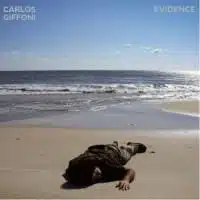
For years, Carlos Giffoni was known more for his organization of the annual No Fun Festival, a central hub of established and upcoming noise music talent, than his myriad solo releases. Like many of his peers, Giffoni’s releases tended to be scattershot, struggling to establish a definitive voice that forged connections through the various fragments he put out into the ether. Then, late last decade, he stumbled upon some analogue gear and began to explore the possibilities of acid house under the moniker No Fun Acid, earning him a number of plaudits from unlikely sources. The expectation was that this project would be a synergy of noise and acid, which doesn’t seem too far a stretch given acid’s roots as atonal synth squiggles set to a throbbing pulse. Instead, No Fun Acid kept the noises fairly tempered and disjointed the balance between the rhythms and melodies, offsetting any suggested connection to the world of dance.
Despite its peculiar approach, No Fun Acid set the stage for what became a mini-exodus of post-noise pioneers into the world of dance music (see also Container, Vatican Shadow, Pete Swanson, Innercity, KPLR, et al.). Giffoni himself dissolved No Fun and its offshoots, including a record label that had recently put out its most successful release to date — Oneohtrix Point Never’s groundshifting Rifts, while continuing to put out increasingly engaging music as a solo artist. Giffoni’s latest, Evidence, is a single for Oneohtrix Point Never’s Daniel Lopatin’s Software label. Evidence is closest kin to No Fun Acid, but the acid seems to have tilted back onto balance from its previous destabilized scale and the two pieces on this new single each have a comparatively sturdy gait.
The first song, “Evidence”, is splintered, like three pieces shoved together. The lyrics call out that “It would be so easy/ To fall in love with you/ But we can’t talk to each other anymore, no”. Appropos of those lyrics, the inaugural solemn piano playing by rising provocateur Laurel Halo doesn’t seem to communicate with the middle section’s roving arpeggios and pumping beats. While this framework may be conceptually solid, it doesn’t make for a particularly consistent listening experience. Much better is “Desire in the Summer”, which contains a grinding industrial percussive crawl more suture than structure and elliptical patterns that seem (de)constructive rather than obstructive. Texture swells on “Desire” until the resultant peaks evoke that perfect convergence of noise and techno that the No Fun Acid sessions originally suggested.
